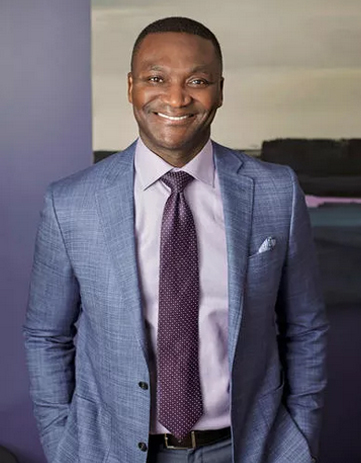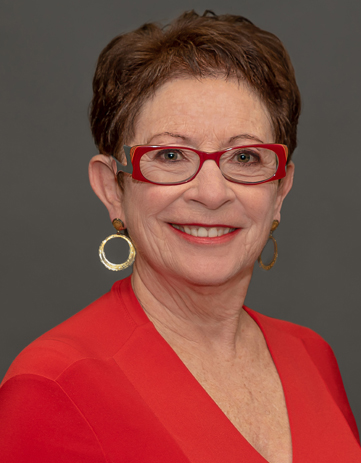FMF 2023 Keynote Speakers
Wednesday November 8th – 8:30 a.m.

Dr. Kannin Osei-Tutu
Dr. Kannin Osei-Tutu will bring an inspirational message, calling for family medicine to serve as a vehicle for positive change as he presents “Igniting Change - Centering Shared Humanity and Inclusive Compassion: Towards greater social justice in medicine.”
Dr. Osei-Tutu is the inaugural senior associate dean - Health Equity and Systems Transformation at the Cumming School of Medicine, having previously served as associate director student advising and wellness in UME, and as director of resident support at PGME. He is also the current recipient of the Donald I Rice Award for leadership, innovation, and excellence in Family Medicine.
Dr. Osei-Tutu is well established as a provincial and national leader in change transformation. The founder and president of the Black Physicians’ Association of Alberta, he elevates the voices of Black physicians, trainees, and learners and is a member of the College of Physicians and Surgeons of Alberta’s Anti-racism Anti-discrimination Action Advisory Committee. He informs the development of policies, educational programs, and curricula that are inclusive and has established partnerships with regulatory and licensing bodies to advance health equity.
Black Physicians of Canada National Leadership Award
This award recognizes individuals for their excellence and exemplary national leadership in advancing BPC's vision of uniting, supporting, amplifying, and empowering Black physicians, physicians-in-training and the Black community in Canada. Nominees can be any Black physician, fellow, resident, or medical student and should have highly distinguished accomplishments and who have had an extraordinary impact at the national level related to their leadership.
Thursday November 9th – 8:30 a.m.

Dr. Tara Kiran
Dr. Tara Kiran investigates how changes in the health care system impact patients, particularly the most vulnerable, in her presentation “Co-designing the future of primary care with patients and the public.”
Much of Dr. Kiran’s research has evaluated how primary care reforms have impacted quality of care. She also leads research to directly improve quality of care including initiatives to measure and reduce care disparities, engage patients in health service improvement, and support physicians to learn from data. In 2022 Dr. Kiran launched OurCare, a national initiative to engage the public in co-creating the blueprint for a stronger, more equitable primary care system in Canada.
Dr. Kiran is the Fidani Chair of Improvement and Innovation at the University of Toronto where she is the Vice Chair of Quality and Innovation in the Department of Family and Community Medicine. She practises family medicine at the St. Michael’s Hospital Academic Family Health Team, is a scientist at the MAP Centre for Urban Health Solutions at St. Michael’s Hospital and an Associate Professor in the Faculty of Medicine and the Institute of Health Policy, Management and Evaluation at the University of Toronto.
Friday November 10th – 8:30 a.m.

Dr. Marie-Dominique Beaulieu
Dr. Marie-Dominique Beaulieu will lead us in an examination of the unique expertise of family physicians, now and in the future, in her presentation “Proud to be who we are: generalists!”
Dr. Marie-Dominique Beaulieu is a graduate of Laval University and a Fellow of the College of Family Physicians of Canada (CFPC). She is Professor Emeritus in the Department of Family Medicine and Emergency Medicine at the University of Montréal and Associate Researcher at the Centre de recherche de Montréal sur les inégalités sociales, les discriminations et les pratiques alternatives de citoyenneté (CRÉMIS). Her research focuses on the organization of primary care, the evaluation of quality of care and collaborative practices. She practised family medicine for 37 years and held various leadership positions. She participated in numerous expert groups that developed clinical practice guidelines.
President of the College of Family Physicians of Canada (CFPC) in 2012-2013, she received an honorary doctorate from Laval University in 2013. From 2014 to 2018, she was Scientific Director of the Quebec Patient-Oriented Research Support Unit as part of the Canadian Institutes of Health Research's Strategy for Patient-Oriented Research (SPOR). She collaborates with the Institut national d'excellence en santé et en services sociaux du Québec (INESSS) as a medical expert in the field of family medicine and primary care. Recognized as one of the 20 pioneers in family medicine research by the CFPC, she has been a member of the Ordre national du Québec and of the Order of Canada since 2022.View Dr. Beaulieu’s promotional video in French.
